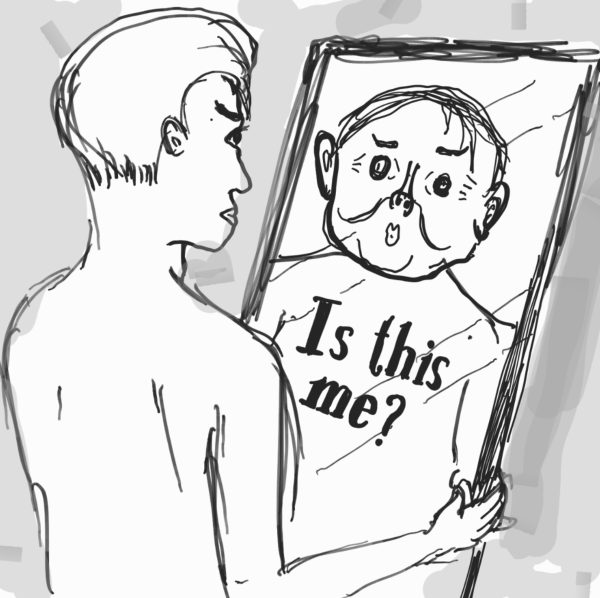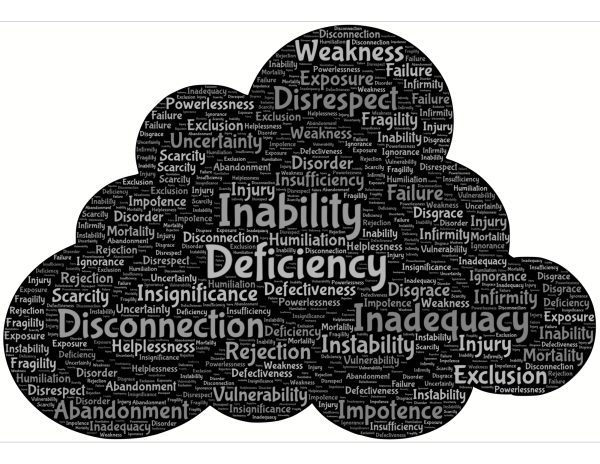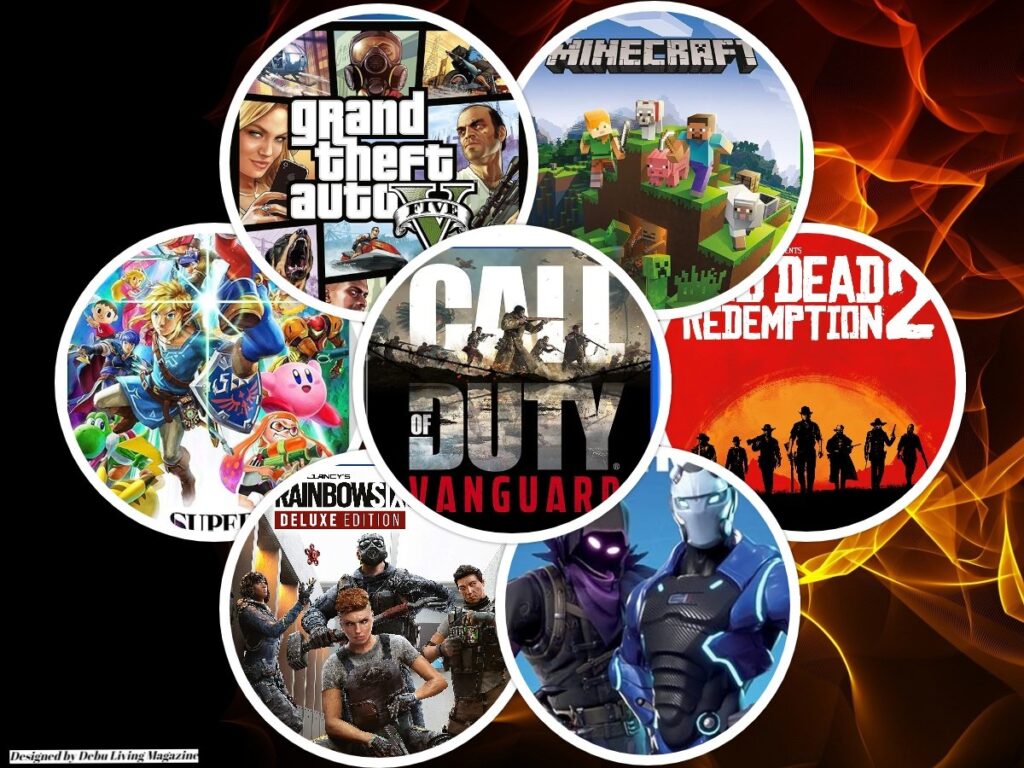(Trigger Warning: Discussions of eating disorders, and dark thoughts. Mentions of suicide.)
Adolescence sucks, right? Not all of it of course, but a lot of it can be pretty sucky. You have to worry about academics, friends, family, jobs in some cases, figuring out what you’ll do after high school, what career you want to have for the rest of your life… oh and figuring out exactly who you are.
It’s a confusing and stressful time for many but it’s definitely not all bad. You could meet your soulmate or friend for life, discover passions you’d never known you’d have, or unearth things about yourself you’d never realize otherwise. But still, it’s like a weird limbo between being a child and a full-fledged adult. At least in my experience, you have this strange dichotomy where you get treated like a kid but are expected to act like and, for all intents and purposes, be an adult.
These pressures adolescents experience are entirely unique compared to the pressures other age demographics face. But where does this tension come from? Typically, the direct nagging comes from schools and parents especially. But what influenced them to feel this way? My answer is society. Our parents and adults around us were also our age once upon a time; and they too felt the pressure that we feel now, albeit a bit different depending on when and where they grew up.
Society forces kids to look, think, or act in a different way. You need to want to be perceived in a specific way and achieve certain goals at predetermined times. And if you go against any of these expectations, you’re wrong.
These prospects can manifest in various ways for each person, after all, everyone is different and can respond differently. For example, because society wants you to have a specific body type, some develop eating disorders (E.D.’s) or problems, while some find other ways to compensate for the negative feelings, e.g. risky/reckless behaviors. Eating disorders and problems, though mostly not talked about, are quite common if you look at the bigger picture.

Eating disorders are defined by the NIMH (National Institute of Mental Health) as “[serious/biologically] influenced medical illnesses marked by severe disturbances to one’s eating behaviors.” An eating disorder is different from an eating problem, which according to the Mind mental health charity is “any relationship with food that you find difficult.” The term “eating problem” applies to a wider variety of issues ranging in severity, type, etc., while “eating disorders” only cover a small portion of eating problems. Both are entirely valid and real things that people deal with, often they go undiagnosed because of the stigma or fear of denial.
Society also forces adolescents to think in a certain way. Whether it’s a particular political belief, needing to be perceived by peers in a specific way, or completing life goals at one set time. Having the stereotypical image of what

high school should look like is one example of this. Society tells you to get out there, be social, join extracurriculars, be the perfect friend/family member, party, maintain perfect grades, and get it all out before you become an adult with real responsibilities, all the while maintaining good mental and bodily health. Now, I guess this is “technically” achievable but I’ve never personally seen it, nor has anyone I know either. I’ve seen some of my peers get close to attaining this image, but they also have to give up something else, usually something from the list above; more often than not, it’s the mental health that gets forsaken. Society tells you that you need to do all of this and that if you don’t, you’re a failure and not good enough.
The disappointment of not fulfilling society’s expectations can lead us to another avenue, dark thoughts. Most people experience dark thoughts at some point in their life and to some degree. Dark thoughts are another can of worms that can lead to tragic results, possibly even suicide. Suicidal behaviors mark up 40+% of high school students according to the National Library of Medicine. Whereas approximately 20% of people aged 3-17 have some kind of mental disorder they are dealing with (according to the same article). The CDC (Center for Disease Control) reports that the number of adolescents experiencing poor mental health is rising.
All of these horrible things are rooted in the same place, societal expectation. So, who is “society” exactly? It sounds like common sense, but I don’t think it’s truly sunk in for most. We are society. We are the ones perpetuating these pressures that we then turn around to criticize. We are the problem. Whether or not it’s a thoughtless offhanded comment to full-on extreme bullying. These ideas and expectations become ingrained in us by our parents and guardians, the same people who were ingrained by the former generation, and so on. It’s all just a cycle, and we need to be the ones to break it. We don’t need to start big or anything, we can start small by being conscious that others around us may be going through something we aren’t aware of. We’re all going through something, big or small, positive or negative, so start by being kind and conscientious. We can break the cycle that hurt us and countless others before us, we just need to try.
References:
- https://www.mind.org.uk/information-support/types-of-mental-health-problems/eating-problems/about-eating-problems/
- “What Is an Eating Problem?” Mind, www.mind.org.uk/information-support/types-of-mental-health-problems/eating-problems/about-eating-problems.
- https://www.nimh.nih.gov/health/publications/eating-disorders#:~:text=Common%20eating%20disorders%20include%20anorexia,different%20but%20sometimes%20overlapping%20symptoms.
- “Eating Disorders: About More Than Food.” National Institute of Mental Health (NIMH), www.nimh.nih.gov/health/publications/eating-disorders#:~:text=Common%20eating%20disorders%20include%20anorexia,different%20but%20sometimes%20overlapping%20symptoms.
- https://www.mayoclinic.org/diseases-conditions/eating-disorders/symptoms-causes/syc-20353603#:~:text=The%20most%20common%20eating%20disorders,the%20nutrition%20your%20body%20needs.
- “Eating Disorders – Symptoms and Causes – Mayo Clinic.” Mayo Clinic, 28 Mar. 2023, www.mayoclinic.org/diseases-conditions/eating-disorders/symptoms-causes/syc-20353603#:~:text=The%20most%20common%20eating%20disorders,the%20nutrition%20your%20body%20needs.
- https://www.ncbi.nlm.nih.gov/books/NBK587174/
- Agency for Healthcare Research and Quality (US). “CHILD AND ADOLESCENT MENTAL HEALTH.” 2022 National Healthcare Quality and Disparities Report – NCBI Bookshelf, 1 Oct. 2022, www.ncbi.nlm.nih.gov/books/NBK587174.
- https://www.cdc.gov/healthyyouth/mental-health/index.htm
- “Mental Health.” DASH | CDC, www.cdc.gov/healthyyouth/mental-health/index.htm.
- Interviews with Daniel Gonzalez, Liz Joseph, Anonymous Person #1, and Anonymous Person #2







